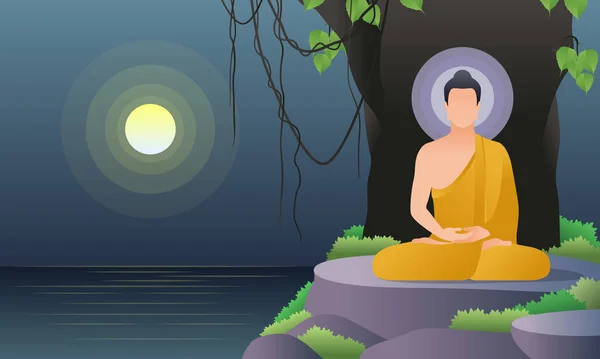Celebrating Vesak – By Niranjan Selvadurai
 Vesak holds a profound significance for over 500 million Buddhists scattered around the globe, as a time to celebrate the life, teachings, and spiritual legacy of Gautama Buddha. Falling on the day of the full moon during the month of May, Vesak commemorates the birth, the awakening (Bodhi), and the passing away (Parinirvana) of Siddhartha Gautama who is referred to as the Buddha – “the awakened one.”
Vesak holds a profound significance for over 500 million Buddhists scattered around the globe, as a time to celebrate the life, teachings, and spiritual legacy of Gautama Buddha. Falling on the day of the full moon during the month of May, Vesak commemorates the birth, the awakening (Bodhi), and the passing away (Parinirvana) of Siddhartha Gautama who is referred to as the Buddha – “the awakened one.”
Siddhartha Gautama was born in Lumbini, current Nepal, around 563 BCE. At the age of 35 he realised his awakening under a Bo tree in Gaya, India. At the age of 80 he passed away in Kusinara, India. This symbolised his final liberation from the cycle of birth and death known as samsara. All three events took place on the Vesak full moon day. After his awakening, the Buddha spent the next 45 years teaching the Dharma (the path to liberation) to a diverse range of followers. He delivered numerous discourses known as suttas, and established a monastic community known as the Sangha.
How may the Buddha’s teaching be summarised? In the Buddha’s own words:
“Sabba papassa akaranam kusalassa upasampada sacitta pariyo dapanam etam buddhana sasanam”
– Dhammapada (Verse 183).
Not to do evil, to perform wholesome actions, to purify one’s mind – this is the teaching of the Buddhas.

Awakening (Bodhi)
This teaching emphasises the need for inner transformation to overcome suffering or unsatisfactoriness (Dukka), without reliance on external forces or deities. The Buddha also highlighted the interconnectedness of phenomena stressing that such phenomena arise dependent on multiple causes and conditions. All conditioned phenomena are impermanent and transient (Anicca) in nature. All processes should be understood as impersonal or non-self (Anatta). There is no permanent, unchanging self or soul within beings.
Vesak serves as a poignant opportunity for adherents to contemplate on the Buddha’s teaching, featuring compassion (Karuna), ethical integrity (Sila), mental cultivation (Bhavana) and inner peace (Samadhi). It is also a time to engage in acts of generosity (Dana). Vesak day resonates deeply with Buddhists and individuals worldwide who cherish its values. Both Buddhists and followers of other faiths take this occasion to reflect on their spiritual paths, striving for inner tranquility and comprehension. Since 1999 Vesak has been officially acknowledged by the United Nations General Assembly, as a day for international spiritual observances.
On this occasion of Vesak let us extend our goodwill to all:
“May suffering ones be suffering free, And the fear-struck fearless be, May the grieving shed all grief, May all beings find relief.”
Niranjan Selvadurai








